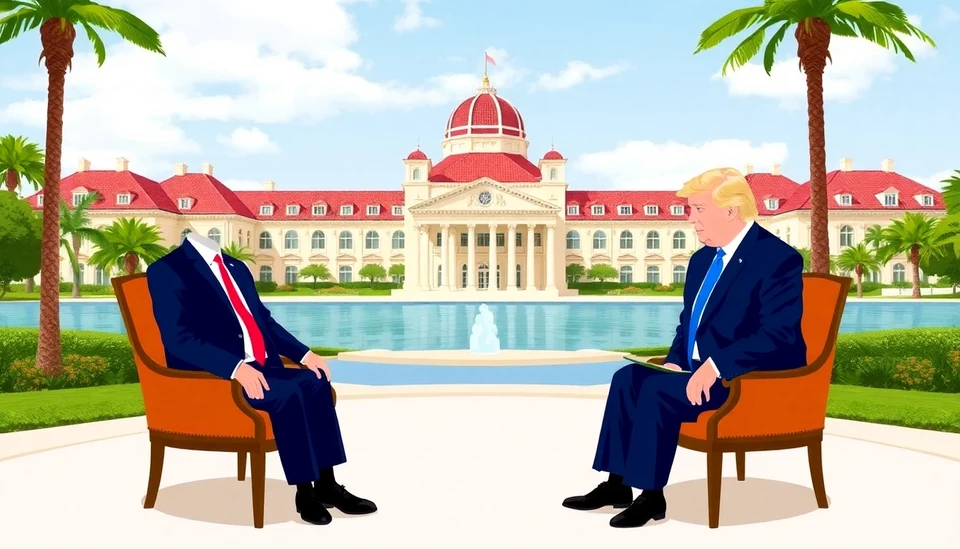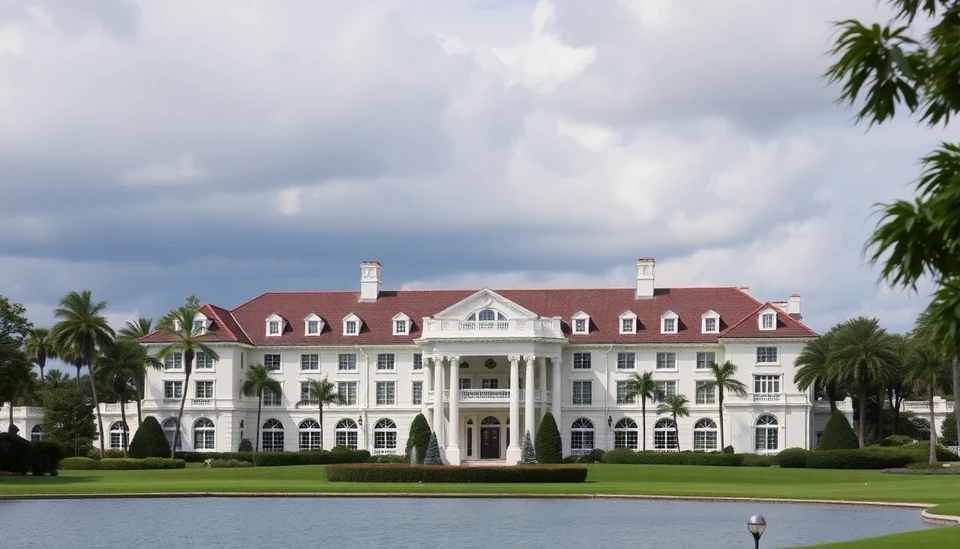
In recent days, discussions surrounding a so-called "Mar-a-Lago Accord" have begun to capture the attention of Wall Street, prompting speculation about its implications for the financial landscape. The term has sparked considerable intrigue among investors and financial analysts alike, who perceive potential changes in economic policies that could profoundly affect various sectors.
The chatter emerged as various market stakeholders noted implications of this preliminary agreement—allegedly center around aligning policies that favor economic growth while simultaneously addressing ongoing financial concerns. Observers have noted that if the speculation holds true, it could usher in new opportunities for investment, paving the way for a more bullish market sentiment.
Key elements escalating the discussion include the potential restructuring of fiscal policies, expected adjustments in taxation, and the striking of deals aimed at bolstering economic stability. Investors who closely monitor political developments are keenly aware that shifts in policy could lead to substantial market movements. The Mar-a-Lago Accord, connected to the former President's estate in Florida, signifies an interesting intersection between politics and economics.
Financial analysts are diving deep into the details of what such an accord might entail. Speculation suggests it could pursue bipartisan cooperation, possibly shaping a blueprint for future governance aimed at reconstruction after recent economic struggles. Particularly, Wall Street is optimistic about policies that could lead to increased infrastructure spending, tax incentives for businesses, or regulatory revisions that encourage investment.
Amid these discussions, there have been sharp movements in various sectors, with shares in construction, real estate, and tech seeing an uptick as analysts align with the notion that policies conducive to growth may soon be on the horizon. Financial experts are urging caution, however, reminding investors to take the current excitement with a grain of salt until more concrete information becomes available.
Nonetheless, many on Wall Street are affirmatively watching this situation unfold, as the dynamics of political agreements can play a significant role in the broader economic landscape. Investors are particularly cautious of how various outcomes from these discussions could influence market volatility and investor confidence moving forward.
As the discourse continues, it's clear that the interest surrounding the Mar-a-Lago Accord could be a catalyst for investment strategies going ahead in 2025. Stakeholders are urged to stay informed as developments are made public, potentially leading to shifts in market sentiment.
In conclusion, while the specifics of the Mar-a-Lago Accord remain somewhat vague, the mere mention has ignited discussions amongst investors about its potential economic transformations. It is crucial for market participants to monitor how these narratives evolve, as they could significantly affect investment outcomes and economic growth in the near future.
#MarALagoAccord #WallStreet #InvestmentOpportunities #EconomicGrowth #MarketTrends
Author: Rachel Greene

